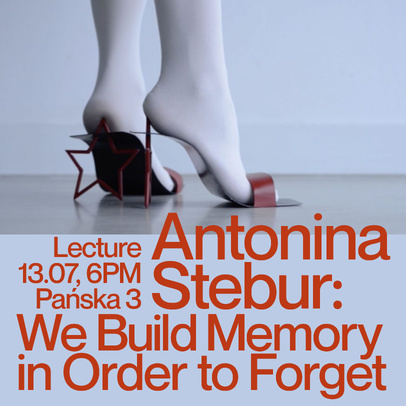We Build Memory in Order to Forget
Lecture by Antonina Stebur
Protests in Belarus and the complex position of Belarus as co-aggressor in the full-scale russian invasion of Ukraine made the complex colonial context tangible. Through art projects and practices in Belarusian art, we will talk about the connection between the imperial imagination and real colonial infrastructures, as well as possible tactics of resistance through the creation of an infrastructure of care. Based on the idea of interdependence and "imperial-colonial communications", the lecture proposes to look at Belarus not as an isolated example, but in the global context of co-dependencies and possible sharing of practices of resistance and solidarity. Artistic practice in this case turns out to be an important tool of political imagination and connectivity, which makes it possible to capture these conflicting contexts without losing its political momentum.
Antonina Stebur is a curator, art historian and art critic. She works as a guest lecturer at the Berlin University of the Arts (UdK), where she teaches an art activism course. She is co-founder of the #damaudobnayavbytu project on gender discrimination in post-Soviet countries and the research platform Spaika.Media. She is a co-curator of the exhibitions “Every Day. Art. solidarity. Resistance” (Ukraine, 2021), “Names” (Belarus, 2017), “I Was Approaching the City I Had Not Known Yet” (Ukraine, 2021), “If Disrupted It Becomes Tangible” (Lithuania, 2023), and others. Stebur is a co-founder and curator of antiwarcoalition.art – The International Coalition of Cultural Workers in Solidarity with Ukraine.
L’Internationale is a confederation of major European museums, art institutions, research centres and think-tanks. It takes its name from the workers’ anthem calling for an equitable democratic society, and references the historical labour movement. In learning from local and shared histories, L’Internationale focuses on what is to come, in imagining, developing and implementing new visions for a future that will be just, democratic and sustainable for everyone, planetwide.
Co-funded by the European Union. Views and opinions expressed are however those of the author(s) only and do not necessarily reflect those of the European Union or the European Education and Culture Executive Agency (EACEA). Neither the European Union nor EACEA can be held responsible for them.
